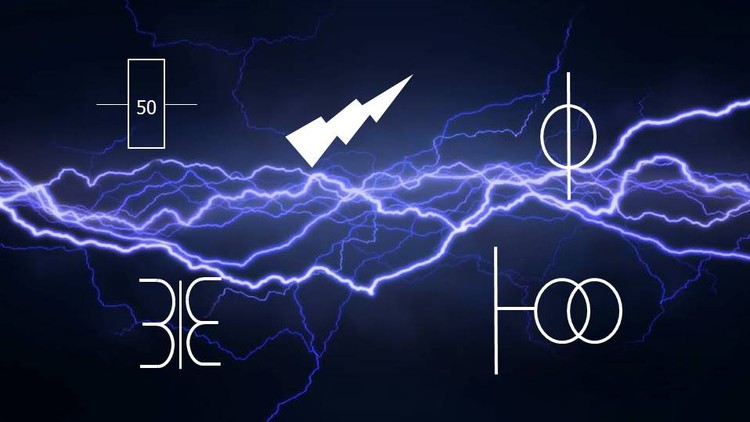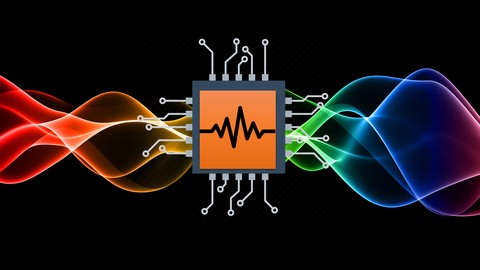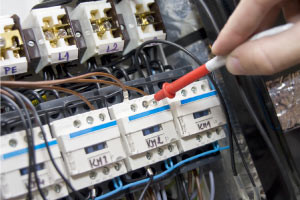Electrical Engineering: Electric Circuits Masterclass

Udemy Review
Location
Online(Course Link)
Dates
On Demand
Course Categories
Math, Science and Engineering
Certficate
Yes(Certificate of Completion)
Language
English
Course Fees
No. of Attendant
Unlimited
Acquired Skills/Covered Subjects
- What an electric circuit is and the fundamental quantities in circuits like voltage and current,The differences between direct current (DC) and alternating current (AC),What resistors, capacitors, and inductors are and how they are used in electric circuits,Sources of electricity in electric circuits,Simplification of resistive, capacitive, and inductive circuits,Basic circuit analysis techniques using Kirchhoff's voltage and current laws, nodal analysis, and loop analysis,Advanced circuit analysis techniques such as the superposition theorem, Thévenin's theorem, and Norton's theorem,Analysis of first-order circuits during transients,Concepts for AC circuit analysis such as admittance and reactance,Complete analysis of AC circuits
| Provider Name | Udemy |
|---|---|
| Training Areas |
|
| Website | www.udemy.com |
| About The Provider |
Udemy.com is an online learning platform aimed at
professional adults and students. Udemy,
a portmanteau of you + academy, has more than 30 million students and 50,000
instructors teaching courses in over 60 languages. There have been over 245
million course enrollments. Students and instructors come from 190+ countries
and 2/3 of students are located outside of the U.S. Udemy also has over 4,000
enterprise customers and 80% of Fortune 100 companies use Udemy for employee
upskilling (Udemy for Business). Students take courses largely as a means of
improving job-related skills.Some courses generate credit toward technical certification. Udemy has
made a special effort to attract corporate trainers seeking to create
coursework for employees of their company. Udemy
serves as a platform that allows instructors to build online courses on topics
of their choosing. Using Udemy's course development tools they can upload
video, PowerPoint presentations, PDFs, audio, zip files and live
classes to create courses.[citation needed] Instructors can
also engage and interact with users via online discussion boards. Courses
are offered across a breadth of categories, including business and entrepreneurship,
academics, the arts, health and fitness, language, music, and technology. Most
classes are in practical subjects such as Excel software or
using an iPhone camera. Udemy also offers
Udemy for Business, enabling businesses access to a targeted suite of over
3,000 training courses on topics from digital marketing tactics to office
productivity, design, management, programming,
and more. With Udemy for Business, organizations can also create custom
learning portals for corporate training. |
This course is designed to provide a complete overview of electric circuit analysis. Electric circuit analysis is the most fundamental concept for electrical engineering, electronics engineering, and computer engineering. It is for that reason that electric circuit analysis is usually the first course taught in electrical, electronics, and computer engineering programs at universities, as basically anything related to electrical, electronics, or computer engineering stems from electric circuit analysis.
In this course you will learn everything about electric circuits, from the basics such as what an electric circuit is and the fundamentals of electrical quantities like voltage, current, and power, all the way to complex techniques for analyzing circuits. The course is roughly divided into the following sections:
1. Fundamentals: in sections 2 and 3 of the course, we will discuss what an electric circuit is at the most basic level, followed by explanations of electrical quantities and sources of electricity.
2. Basic DC Circuit Analysis: in sections 4, 5, and 6 we will discuss the analysis of direct current (DC) circuits, starting from basic analysis techniques such as Kirchhoff's voltage law and Kirchhoff's current law (KVL and KCL), voltage division, current division, nodal analysis, and loop analysis. We will also be discussing how complex resistive circuits can be simplified into equivalent circuits for easier analysis.
3. Advanced DC Circuit Analysis: in section 7, we will discuss advanced analysis techniques such as the superposition theorem, Thevenin's theorem, and Norton's theorem.
4. Energy-Storing Devices: in sections 8, and 9, we will discuss passive components in circuits that are able to store energy: capacitors and inductors. We will cover the fundamentals of capacitors and inductors, how they store energy, and how to simplify complex circuits containing combinations of capacitors and inductors into simpler circuits for easier analysis.
5. Transient Circuits: in section 10, we will discuss the analysis of first-order electric circuits during transients. This is where things start getting a bit more advanced, but we will solve several examples to illustrate how circuits behave during transients, as opposed to the stead-state circuits previously discussed.
6. AC Circuit Analysis: in section 11, we will discuss the analysis of alternating current (AC) electric circuits, starting from explaining how resistors, capacitors, and inductors behave in AC circuits (as opposed to DC circuits previously discussed) and moving into more complex topics such as defining new concepts like admittance and reactance and analyzing power dissipation in circuits.
In each section, several examples are solved to illustrate how to analyze practical circuits.
By learning all the fundamentals about electric circuit analysis, you will be able to continue studying other topics in electrical engineering, electronics engineering, and computer engineering, such as analog electronics, digital electronics, circuit design, electric machines, power systems, and more.











